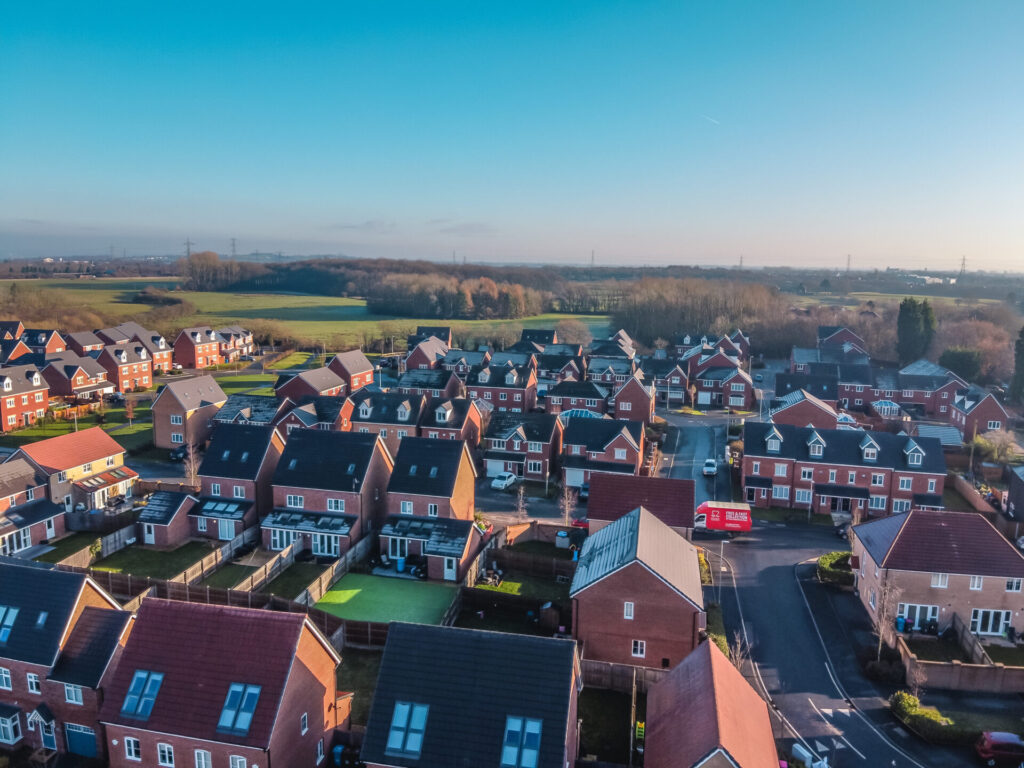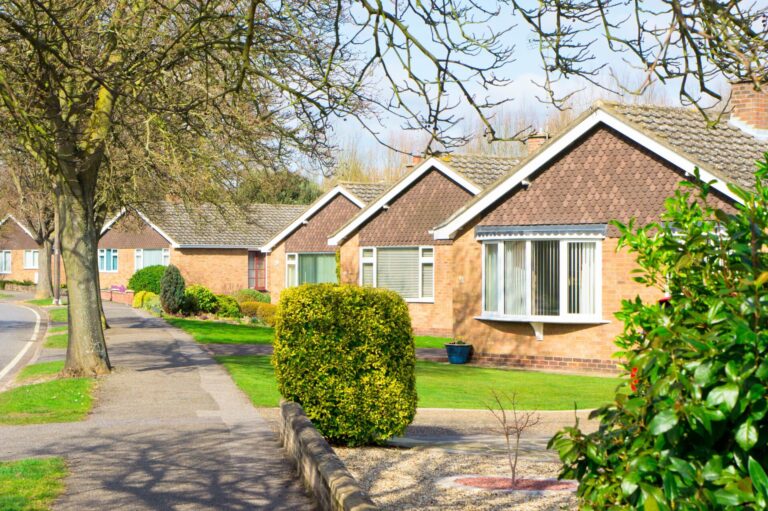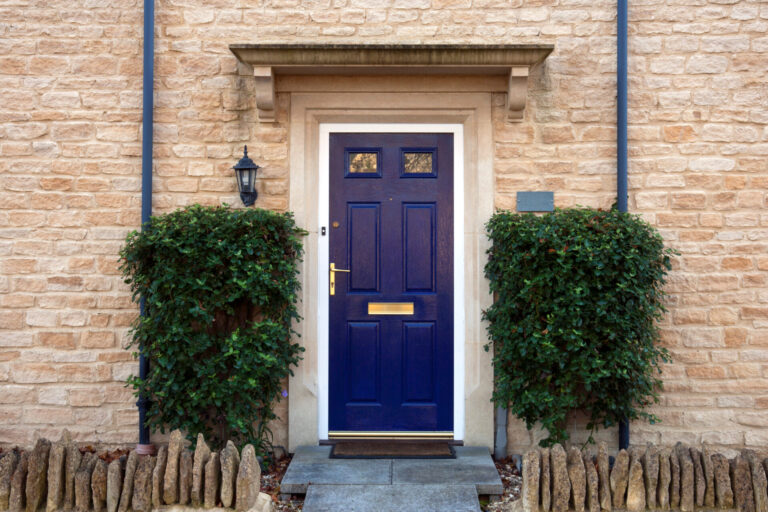Affordable home ownership schemes have been created by the government to help people to get onto the property ladder. There are several options available, and one of them might be the right fit for you. Let’s dig into the different types…
Shared ownership schemes
The government has created a shared ownership scheme. This scheme allows you to buy shares in a property and you pay rent on the part of the home that you don’t own.
Shared ownership means you need a smaller deposit and mortgage because you’re not buying the whole property; this helps people to get on the property ladder sooner than they’d otherwise be able to.
You can learn more about Shared ownership further on in this guide.
Lifetime ISA
A Lifetime ISA (LISA) is another way to save for your first home, or to save for your retirement. It’s available for people aged 18 to 39 years of age.
You can keep putting money into your LISA until you’re 50 years old, but you must open the account, and put in your first payment, before you’re 40. The government provides a 25% bonus to your savings, up to the value of £1,000 a year.
Your can learn more about Lifetime ISAs further on in this guide.
Which Help to Buy schemes are no longer available?
Help to Buy ISA
A Help to Buy ISA (Individual Savings Account) was designed to help people save for a deposit for their first home. You put in up to £200 each month, and when you buy your first home, the government will top up your savings by 25% (up to the value of £3,000). The scheme is still running for those that already have a Help to Buy ISA, but it’s now closed to new applicants. You only get this bonus when your sale is between exchange and completion, and your solicitor will need to apply for it on your behalf.
Help to Buy loan
The Help to Buy scheme provided people with a loan (called an equity loan) of up to 20% of the property price to help them buy a new build home. The Help to Buy loan scheme is now also closed to new applicants. People who took out one of these loans will start to pay interest on the loan after the first five years. The interest rate in the sixth year of the loan is 1.75%, and it will increase each April.
Types of properties eligible for Help to Buy
The Help to Buy ISA can be used to buy any property that’s £250,000 or under (or £450,000 and under in London). Unlike other government schemes, the property you buy doesn’t have to be a new build. It can be any property type, including a terraced house, flat or bungalow, but it must be the home that you intend to live in (rather than rent out). It must also be the only home you own.
For those already in the scheme, you can continue to save up to £200 a month until 20th November 2029. You’ll then have until 1st December 2030 to claim your government bonus.
Alternatives to Help to Buy for new savers
If you’ve missed the boat on the Help to Buy ISA, there are other schemes available to help you buy your first home.
Shared ownership
Shared ownership is a good alternative for people that can’t afford the initial deposit and ongoing mortgage payments for a home that’s suitable for them. Shared ownership means that you buy a share of the property, and the landlord retains ownership of the rest. You’ll pay rent on the share that the landlord owns. (This scheme works differently in Northern Ireland, Scotland and Wales.)
Shared ownership eligibility
The shared ownership scheme is open to a selection of buyers. To be eligible, you must be over 18 years old and have a household income of £80,000 a year or less (£90,000 or less in London). You must also be one of the following:
- A first-time buyer
- Someone who used to own a property, but had to sell it, and now can’t afford to buy again
- People forming a new household (due to a relationship breakdown or other reasons)
- An existing shared owner (wanting to move)
The benefits of shared ownership
The greatest benefit to shared ownership is that you can start by buying a relatively small amount of a property, such as 10%. This means that your deposit will also be relatively small so you can enter the property market sooner that you’d otherwise be able to.
If you can afford it, you can buy a higher share price of the property; up to 75%. The landlord retains ownership of the rest of the shares, and you’ll pay rent on that part of the property. Most landlords charge 2.75% per year on the share they own.
As time goes on and you can afford more, you can increase your shares in the property; this is referred to as staircasing. You can do this several times to gradually increase the amount of shares you own, right up to 100%.
The costs of shared ownership
- Deposit
- Mortgage payments (on the shares you own)
- Rent payments (on the shares you don’t)
- Utility bills
- Council tax
- A service/estate charge (for communal areas)
- You may need to pay into a repairs service fund
Is shared ownership right for me?
Whilst this may feel like a lot to get your head around, shared ownership has worked well for many people.
Find out as much as you can about the process so you know more about what to expect; there’s plenty of advice out there and our agents are on hand to provide you with all the information you need. Shared ownership might be the best way for you to get onto the property ladder and gradually build up your shares over time.
Lifetime ISA
The Lifetime ISA (LISA) is another way for first-time buyers to save up to buy a home (or for people to plan ahead for retirement). You need to be between 18 and 39 years old to open a new Lifetime ISA account. However, you can keep putting up to £4,000 a year into your account until you’re 50 years old. The government adds a 25% bonus to your savings, capped at £1,000 per year.
Who’s eligible for a Lifetime ISA?
When saving to buy a property, LISA’s are only available to first time buyers. To receive your LISA bonus, you have to buy a UK residential home that costs £450,000 or less. It also has to be the home that you intend to live in, and it needs to be bought with a mortgage (rather than cash).
How do I apply for a Lifetime ISA?
There are several Lifetime ISA (LISA) providers available, so you can pick between them to find the best rates and terms for you.
Once you’ve chosen your provider, you need to open an account with them directly. This is often quickest and easiest online, or through the provider’s app. Most providers require a minimum deposit of £1.
When you apply, you’ll need the following details to hand:
- Full name
- Date of birth
- National Insurance number
- Full address and contact information
The provider will use this information to check that you’re eligible etc.
How much can I save with a Lifetime ISA?
Once you’re up and running, you can put up to £4,000 into your LISA every year. The government will then give you a 25% bonus on the amount you’ve put in every year too.
For example, if you save £800 one year, the government will put in an extra £200 as your bonus. This gives you a total of £1,000 for that year, and that’s before you’ve earned any interest on it.
If you save the maximum amount of £4,000 in a year, the government will give you a bonus worth £1,000, giving you a total of £5,000 for that year (before interest).
What does this mean for first-time buyers?
Saving up for your first home can feel overwhelming. These government schemes are designed to help by providing a safe and manageable way for you to save for your deposit and other buying costs. The amount of money you put aside each year is fully in your control and you can change it depending on how much you can afford each year. The government bonus provides you with extra help to boost and build up your savings.
The £450,000 house price cap for the LISA provides you with plenty of options to find a great range and types of property in the UK. This gives you flexibility depending on how much you can afford, the type of property you want, and the exact location you want to live in.
You’ll be surprised at how affordable some homes can be if you know how to find them. Chat with your local Hunters team now to find out more about the types of properties coming up in your area. They’ll show you what’s available right now, and they’ll tell you about any new properties coming onto the market.
Buying as a couple
If you’re buying your first house as part of a couple, you can both have a LISA, and you’ll both be eligible to get your bonus to help you buy your home. This is really helpful when building up your deposit as it can help you to save up much more quickly.
FAQs
What is the Help to Buy scheme and how does it work?
The Help to Buy ISA is a scheme that’s designed to help people save up to buy a home. It’s a savings account that you can put £200 in each month, and the government will give you a 25% bonus on this (up to £3,000) when you buy your first home. It’s still running for those with an account, but it’s closed to new applicants.
What types of properties are eligible for the Help to Buy scheme?
Help to Buy ISAs can be used to buy any property that’s £250,000 or under (or £450,000 and under in London). Unlike other government schemes, this one isn’t restricted to new builds. It can be any property type, including flats, terraced houses, semi-detached houses, bungalows, and detached houses, as long as they’re in the correct price range.
What is the process for applying for shared ownership?
Start by checking that you’re eligible for the shared ownership scheme. You must be 18 years of age or more, and have a household income of £80,000 a year or less (£90,000 or less in London). It’s open to first time buyers, and people that have previously owned a home, but can’t afford to any more.
Once you know you’re eligible, you can approach housing providers for advice and to find a property you want to buy. Once you’ve chosen one, you reserve your home (often by paying a fee of up to £500) and choose someone to do your legal work for you.
What should I consider when buying a new build home?
Before buying a new build home it’s important to do your research. Check online reviews about the building developer, and make sure that they work to a code of standards. It’s also good to have your “mortgage in principle” in place so you know that you can move forward after you’ve reserved the home.
Do your research on the listing price, too – compare it with other properties in the area to check you’re not overpaying. Talk to your solicitor about all the details provided in the paperwork and ask about any management fees you’d have to pay. Management fees are for the upkeep of any communal areas, and they could be an ongoing cost for you.
Working towards buying a new home is an exciting time, but it can feel daunting too. Here at Hunters, we’re always available to talk to you about your options. If you’re considering buying a home using a Lifetime ISA, or you’re considering shared ownership, contact your local branch today and we’ll talk you through all the details.




